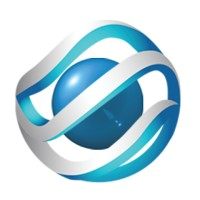Application Developer-Blockchain
Blue Pearl.com
Office
Johannesburg, South Africa
Contract
• Professionals in this specialty have expertise in translating IT requirements in the
design, development, and assembly of components to create custom information
systems.
• They work in an agile way to translate user stories to well-structured code and unit
tests, in an internal or external Client billable services and implementation
environment.
• In this specialty, they demonstrate their capability to provide the skills to deal with
blockchain (e.g. Hyper-ledger Fabric, Ethereum
Understanding of Blockchain Concepts: You need a strong understanding of blockchain technology, including how it works, its underlying principles (such as consensus algorithms), and its various components (such as smart contracts).
Programming Languages: Proficiency in programming languages commonly used in blockchain development is essential. These languages may include:
Solidity: Solidity is a programming language used for writing smart contracts on Ethereum and other Ethereum-compatible blockchains.
JavaScript/TypeScript: Many blockchain platforms and frameworks, such as Ethereum and Hyperledger Fabric, provide SDKs and tools that use JavaScript or TypeScript.
Python: Python is widely used for blockchain development, especially for tasks like building blockchain applications, creating tools for blockchain analysis, and scripting.
Go: Go (or Golang) is the language in which many blockchain platforms like Hyperledger Fabric are implemented.
Development Frameworks and Tools: Familiarity with blockchain development frameworks and tools is important. Examples include:
Truffle: Truffle is a popular development framework for Ethereum that provides tools for smart contract compilation, testing, and deployment.
Web3.js: Web3.js is a JavaScript library that allows interaction with the Ethereum blockchain, enabling developers to build decentralized applications (dApps).
Hyperledger Composer: For developing enterprise blockchain applications on the Hyperledger Fabric framework.
Smart Contracts: Understanding and experience in developing smart contracts, which are self-executing contracts with the terms of the agreement directly written into code.
Decentralized Application (dApp) Development: Knowledge of building decentralized applications (dApps) that run on blockchain platforms, including frontend development skills (e.g., HTML, CSS, JavaScript) for creating user interfaces that interact with the blockchain.
Security Awareness: Given the importance of security in blockchain applications, having knowledge of common security vulnerabilities and best practices for securing smart contracts and blockchain networks is crucial.
Version Control Systems: Proficiency in using version control systems like Git, which are essential for collaborative development and managing codebases.
Problem-Solving Skills: Strong problem-solving skills are necessary for troubleshooting issues related to blockchain development and optimizing the performance of blockchain applications.
Continuous Learning: The blockchain space evolves rapidly, so a willingness to learn about new technologies continuously, platforms, and best practices is essential for staying current in the field.
Requirements
bachelor's or master's degree in computer science, software engineering, or a related field can be beneficial. Some employers may prefer candidates with a solid educational background.Understanding of Blockchain Concepts: You need a strong understanding of blockchain technology, including how it works, its underlying principles (such as consensus algorithms), and its various components (such as smart contracts).
Programming Languages: Proficiency in programming languages commonly used in blockchain development is essential. These languages may include:
Solidity: Solidity is a programming language used for writing smart contracts on Ethereum and other Ethereum-compatible blockchains.
JavaScript/TypeScript: Many blockchain platforms and frameworks, such as Ethereum and Hyperledger Fabric, provide SDKs and tools that use JavaScript or TypeScript.
Python: Python is widely used for blockchain development, especially for tasks like building blockchain applications, creating tools for blockchain analysis, and scripting.
Go: Go (or Golang) is the language in which many blockchain platforms like Hyperledger Fabric are implemented.
Development Frameworks and Tools: Familiarity with blockchain development frameworks and tools is important. Examples include:
Truffle: Truffle is a popular development framework for Ethereum that provides tools for smart contract compilation, testing, and deployment.
Web3.js: Web3.js is a JavaScript library that allows interaction with the Ethereum blockchain, enabling developers to build decentralized applications (dApps).
Hyperledger Composer: For developing enterprise blockchain applications on the Hyperledger Fabric framework.
Smart Contracts: Understanding and experience in developing smart contracts, which are self-executing contracts with the terms of the agreement directly written into code.
Decentralized Application (dApp) Development: Knowledge of building decentralized applications (dApps) that run on blockchain platforms, including frontend development skills (e.g., HTML, CSS, JavaScript) for creating user interfaces that interact with the blockchain.
Security Awareness: Given the importance of security in blockchain applications, having knowledge of common security vulnerabilities and best practices for securing smart contracts and blockchain networks is crucial.
Version Control Systems: Proficiency in using version control systems like Git, which are essential for collaborative development and managing codebases.
Problem-Solving Skills: Strong problem-solving skills are necessary for troubleshooting issues related to blockchain development and optimizing the performance of blockchain applications.
Continuous Learning: The blockchain space evolves rapidly, so a willingness to learn about new technologies continuously, platforms, and best practices is essential for staying current in the field.
Application Developer-Blockchain
Office
Johannesburg, South Africa
Contract
September 24, 2025
